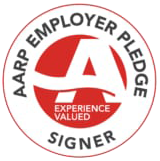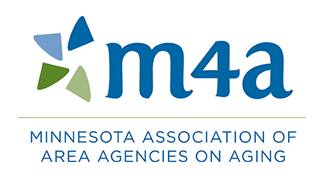What Services Can Help Me Stay in My Home
The choice to stay in your home or to seek new options is an important and personal decision. The following are services that allow older adults to remain in their homes for longer and more satisfying periods of time.
If you are interested in learning more, call the Senior LinkAge Line®: Link to a Local Aging Expert at 1-800-333-2433. They will provide you with additional and more specific information about services and the agencies and organizations that provide them. You can also access information at the MinnesotaHelp.info® website.
Adjustment to Blindness
Vision loss due to conditions like macular degeneration, diabetic retinopathy, glaucoma and other age-related eye conditions can be a frustrating and difficult part of aging. The good news is that while it may require learning some new skills and making some adaptations, vision loss need not destroy quality of life, ability to live independently, or ability to be involved in the community. For more information contact MN State Services for the Blind.
Adult Day Services/Centers
Provide an organized program of supportive care during the day in a large or group environment supervised by a trained individual(s). Typically meals, snacks, recreational activities and medication reminders are provided. Sometimes additional services such as bathing and grooming or transportation to and from the center can be arranged.
Caregiver Consultant/Specialist
Caregiver consultants/specialists provide professional services to help develop the caregiver role, extend the caregiving career and maintain the health and well-being of caregivers. They advocate on behalf of caregivers, provide emotional reassurance to caregivers and assist them with accessing information, support and community services.
Caregiver Education
Workshops and training help families anticipate, plan for and provide care that may be needed, as family members grow older
Caregiver Support Groups
Provide opportunities for those who care for a loved one to get together with others experiencing similar situations, to share and learn
Case Management
A case manager serves as a substitute family member when family cannot be there. Services vary according to client need and may include transportation, coordination of services and appointments, assessments, advocacy, companionship and emergency contact services.
Chore Services
Provide assistance with heavier housekeeping or routine home maintenance tasks such as snow removal, lawn mowing, yard work, wall washing, changing storm windows and minor home repairs.
Emergency Response System
An emergency response system assists older and disabled persons to call for help in an emergency by using a home alert unit. The unit transmits a signal that sets a response plan into action.
Telephone Reassurance
Provides regular phone contact to isolated homebound persons to ensure their well-being and to provide social support.
Energy Assistance Program
For those eligible, provides financial assistance to help pay for fuel or heating bills. Eligibility is based on income, assets and family size.
Faith in Action Programs
Provide non-professional volunteer assistance through partnerships with local faith communities. Services may include transportation, shopping, friendly visiting, yard work, household chores, mail management, meal preparation, respite care, telephone reassurance, referral, etc. Generally, programs do not charge fees for their services, but may provide a suggested fee schedule for a particular service and encourage participants and families to give a donation.
Food Shelves/Nutritional Assistance Program for Seniors
Provide food and other grocery items to low income people or those in an emergency or crisis situation. The Nutritional Assistance Program for Seniors (NAPS) is a part of the U.S. Department of Agriculture’s Commodity Supplemental Food Program. It is designed to provide healthy and nutritious commodity food products each month at no cost to eligible older adults over age 60.
Food Support Program (SNAP)
County-run federal program that helps Minnesotans with low incomes get the food they need for sound nutrition and well-balanced meals. The program issues electronic SNAP benefits via a debit card that can help stretch a household’s food budget. Persons must meet income and asset guidelines to be eligible for this program.
Friendly Visiting
Offers regular in-home visits to isolated or homebound older adults to provide companionship and socialization.
Grocery Delivery
Available to persons that have difficulty shopping for themselves. A delivery fee is usually charged.
Health Insurance Counseling
Assists older adults and their families understand their medical bills, Medicare, supplemental insurance policies and long-term care insurance. Trained counselors can assist with tracking and/or appealing claims, completing application forms for government programs and providing assistance comparing health insurance options. They can also assist with Medicare Part D plan research/enrollment and in identifying other programs that may help with prescription drug costs.
Home Health Care
Consists of a variety of services that assist people to remain in their own homes. It may include home health aide (provides personal care such as bathing and grooming), personal care attendant, homemaker (provides home management services such as laundry, housekeeping or meal preparation), chore service (provides heavier housekeeping or routine home maintenance such as mowing, snow removal, yard work, wall washing, changing storm windows, or minor repairs), respite care (provides short-term care to enable those caring for a loved one in their home to get a break or time away), or other inhome services.
Homemaker Services
Provide assistance with general household activities, which may include light housekeeping, laundry, meal planning and preparation, assistance with money management, performing errands and shopping.
Hospice
Coordinates care and services to assist persons who are terminally ill, as well as their loved ones. Hospice can be provided in one’s home, a hospital or nursing home or a freestanding hospice center.
Living at Home/Block Nurse Program
Assists older adults who reside within a defined geographic area, to live independently and safely by providing affordable, in-home services and volunteer support. In-home services may include homemaker/home health aides, skilled nursing, post hospital care, long-term illness management, medication management and nutrition and exercise education. Volunteers provide friendly visiting, chore help, transportation, shopping assistance, help with managing mail, telephone reassurance, peer counseling and caregiver support.
Loan Locker/Closet
Provides the use of low-tech equipment such as toilet seat risers, shower seats, wheel chairs and walkers to help persons maintain their independence.
Long-Term Care Consultation
Local county agency staff can provide information about community services and matches those services to an individual’s needs and preferences. A public health nurse and/or social worker conduct an assessment to determine a person’s general health, ability to take care of routine daily activities, home environment, social needs and family support. They make recommendations about service options that meet identified needs, how much they will cost and ways to pay for services.
Long-Term Care Options Counseling
Options counselors offer information and assistance to consumers and their family members about options that are available to meet their long-term care needs. Consumers and family members receive assistance in setting goals, making choices and planning for in-home services in keeping with their own individual strengths, needs and resources.
Home Delivered Meals
Nutritionally balanced meals delivered to homebound older adults who are unable to regularly or adequately prepare their own meals. Special diets are often available.
MinnesotaHelp.info®
Developed by the Minnesota Board on Aging, www.MinnesotaHelp.info provides individuals, their families and caregivers personalized assistance to find and access services.
Palliative Care
Palliative care is a medical specialty focused on relief of pain and other symptoms of serious illness. The goal is to prevent and ease suffering and to offer patients and their families the best possible quality of life. Palliative care is appropriate at any point in a serious or life-threatening illness. It is not dependent on prognosis. It can be provided at the same time as curative and life-prolonging treatment.
Click on the video below to learn more about Palliative from Twin Cities Public Television.
Parish Nursing
Service can vary from church to church depending on the needs of the parishioners, the resources available and the nurse’s area of expertise. Examples of services that could be offered are health counseling, health resource referral and health education.
Peer Counseling
Provides trained older adult volunteers to help and support other older adults who are coping with loss, grief, loneliness, isolation, depression and/or caregiving issues.
Respite Care
Provides short-term care to enable those caring for a loved one in their home to get a break for rest and relaxation, or time away to do errands. Respite Care may be provided in the home through a formal home care agency or an informal volunteer program, in a day care setting or via a short-term institutional placement.
Return to Community Program
A Minnesota Board on Aging and Area Agencies on Aging initiative that targets nursing home residents who express a desire to return to the community and/or have a support person to assist with their transition from the nursing home to the community. Senior LinkAge Line® staff assists nursing home residents with transitioning from the nursing home to the community. They provide intensive support activities including: long-term care options counseling; evaluation; support planning; and service coordination.
Click here to learn more about Return to Community, call the Senior LinkAge Line® at 1-800-333- 2433.

Reverse Mortgage
Enables older homeowners (62 and over) to borrow against the equity in their home, without having to sell their home, give up title or make a monthly payment. Cash advances from this federally regulated loan are considered “tax-free” income and do not affect Social Security or Medicare benefits. Reverse mortgages provide older adults the personal and financial independence to live a more comfortable retirement in their own homes.
Senior Dining/Congregate Dining
Nutritionally balanced meals are served to older adults in a group setting. Special diets are available. Social and volunteer opportunities, as well as informational and educational programs are often part of the senior dining program. Meals are usually subsidized with federal and state funds. People age 60+ and their spouses donate toward the cost of the meal.
Support Groups
Provide mutual support and education for persons dealing with common concerns and issues.
Transportation Programs
Provide van, bus or volunteer driver rides to various locations. Rides may be provided for medical appointments, personal business, shopping, visits to senior centers, congregate dining, etc.




